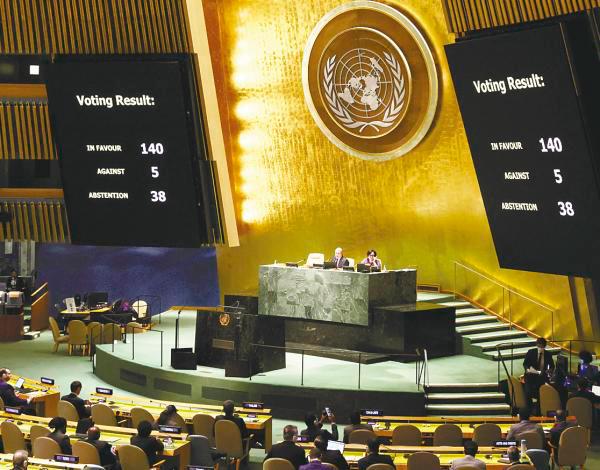SINCE its inception, the United Nations (UN) has been tasked with maintaining international peace and security. However, a closer examination of its track record reveals significant failures, often resulting from indecision, selective application of international norms and the influence of powerful member states.
These failures have led to grave consequences, as seen in Syria, Bosnia and Rwanda. The ongoing Israeli-Palestinian conflict further highlights the UN’s inability to effectively respond, underscoring the pressing need for reform.
The UN has failed to enforce multiple resolutions condemning Israel’s actions, including its occupation of Palestinian territories and construction of illegal settlements. The US has consistently used its veto power to shield Israel from criticism, rendering the UN irrelevant in finding a peaceful resolution.
To restore the UN’s credibility in conflict resolutions, certain reforms must be implemented. Firstly, the veto system, which frequently obstructs progress, should undergo a comprehensive restructuring.
The complete halt of peace initiatives resulting from the veto power undermines the core principles upon which the UN was founded. By limiting the use of veto power in cases involving mass atrocities and humanitarian crises, decision-making paralysis can be prevented.
Introducing term limits for permanent members will prevent the stagnation of ideas and create an environment that fosters fresh perspectives. Such a reform will ensure that different countries have the opportunity to represent their interests on the global stage, cultivating a more inclusive and dynamic UN Security Council (UNSC).
Expanding the membership of the UNSC to include influential countries such as India, Brazil, Germany, Japan and African nations will enhance its representativeness and legitimacy. This expansion will foster a more balanced decision-making process, better reflecting the current global power structure.
Moreover, involving regional organisations and encouraging collaboration with regional actors will provide a deeper understanding of regional issues and improve the efficacy of peacekeeping efforts.
The UN must reform its internal decision-making procedures to address emerging crises swiftly and efficiently.
Implementing mechanisms that reduce bureaucratic hurdles and enabling rapid responses can significantly improve the organisation’s ability to maintain peace and security worldwide. This reform will ensure that necessary actions are taken promptly to prevent situations from escalating, and protect civilians.
The UN should facilitate the greater involvement of NGOs, humanitarian organisations and civil society representatives, in conflict resolution processes.
Their participation can inject diverse perspectives and solutions, while exerting moral and social pressure on the warring parties to seek peaceful resolutions.
The failure of the UN to effectively maintain peace, especially in the Israeli-Palestinian conflict, emphasises the urgent necessity for reform.
By restructuring the veto system, enlarging the membership to include emerging powers, implementing term limits for permanent members and involving NGOs in the resolution process, the UN can regain relevance and effectiveness in conflict resolution. These reforms will pave the way for a more equitable, inclusive and efficient international community working collaboratively to safeguard global peace and security.
Comments: letters@thesundaily.com









